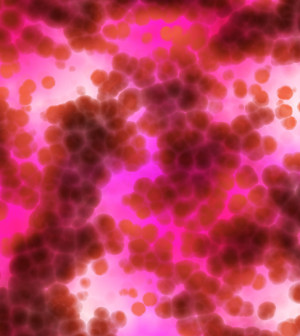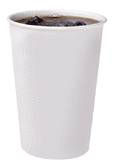- 8 Ways to Increase Dopamine Naturally
- 7 Best Breads for Maintaining Stable Blood Sugar
- Gelatin vs. Collagen: Which is Best for Skin, Nails, and Joints?
- The Long-Term Effects of Daily Turmeric Supplements on Liver Health
- Could Your Grocery Store Meat Be Causing Recurring UTIs?
- Are You Making This Expensive Thermostat Error This Winter?
- Recognizing the Signs of Hypothyroidism
- 10 Strategies to Overcome Insomnia
- Could Artificial Sweeteners Be Aging the Brain Faster?
- Techniques for Soothing Your Nervous System
Sodas, Other Sweet Drinks Tied to Higher Risk for Endometrial Cancer


Older women who drink lots of soda and other sugary beverages may be at higher risk for endometrial cancer, a new study suggests.
Endometrial cancer involves tumors in the lining of the uterus, and typically affects women in their 60s or 70s, according to the U.S. National Cancer Institute (NCI).
In the new NCI-funded study, researchers looked at data from more than 23,000 postmenopausal women in Iowa who were followed from 1986 to 2010.
They found that those who drank the largest amounts of sugar-sweetened beverages had a 78 percent higher risk for a tumor known as estrogen-dependent type I endometrial cancer.
The more sugar-sweetened beverages a woman drank, the greater her risk, according to the study published online Nov. 22 in the journal Cancer Epidemiology, Biomarkers & Prevention.
There was no link between endometrial cancers and consumption of sugar-free soft drinks, sweets/baked goods and starch.
In a journal news release, study author Maki Inoue-Choi said she wasn’t surprised that increased intake of sugary drinks was tied to this estrogen-linked cancer.
“Other studies have shown increasing consumption of sugar-sweetened beverages has paralleled the increase in obesity,” explained Inoue-Choi, who was a research associate at the University of Minnesota School of Public Health when the study was conducted. “Obese women tend to have higher levels of estrogens and insulin than women of normal weight, [and] increased levels of estrogens and insulin are established risk factors for endometrial cancer.”
Inoue-Choi is currently a postdoctoral fellow at the NCI and the U.S. National Institute on Minority Health and Health Disparities.
A group representing the beverage industry took issue with the findings.
In a statement from the American Beverage Association, Dr. Richard Adamson, former director of the NCI’s Division of Cancer Etiology and now a consultant to the group, said that, “this study does not show that sugar-sweetened beverage consumption causes endometrial cancer.”
Adamson said that, “in fact, its findings conflict with the results of several other published studies that showed no association between consumption of sugar and risk for endometrial cancer.”
He also stressed that the study only showed an association between sweetened beverage intake and endometrial cancer risk, and it could not show cause-and-effect. And he noted that people in the upper one-fifth of sweetened beverage intake had levels ranging from 1.7 to 60.5 servings per week.
That is “the difference between 1 can and more than three 12-packs a week [in 8-ounce servings],” Adamson said. ” This is a very broad range.”
For her part, Inoue-Choi said that since these are the first findings of their kind, they do need to be reproduced in other studies.
But, she added, “research has documented the contribution of sugar-sweetened beverages to the obesity epidemic. Too much added sugar can boost a person’s overall calorie intake and may increase the risk of health conditions such as obesity, diabetes, heart disease and cancer.”
More information
The American Cancer Society has more about endometrial cancer.
Source: HealthDay
Copyright © 2026 HealthDay. All rights reserved.










